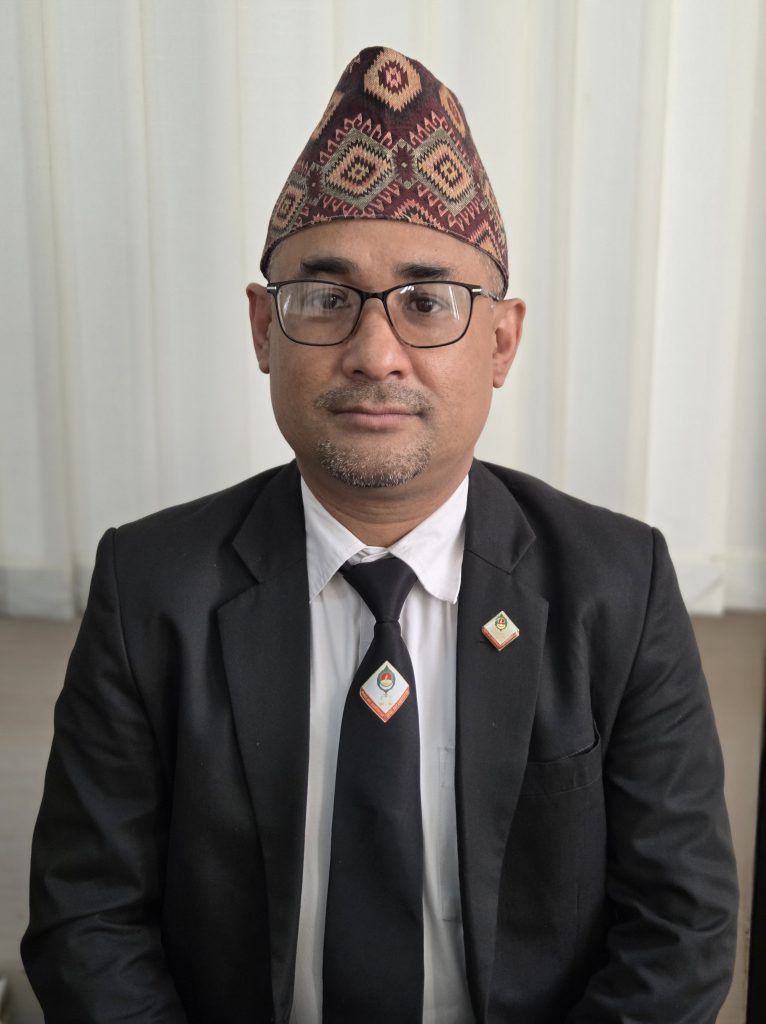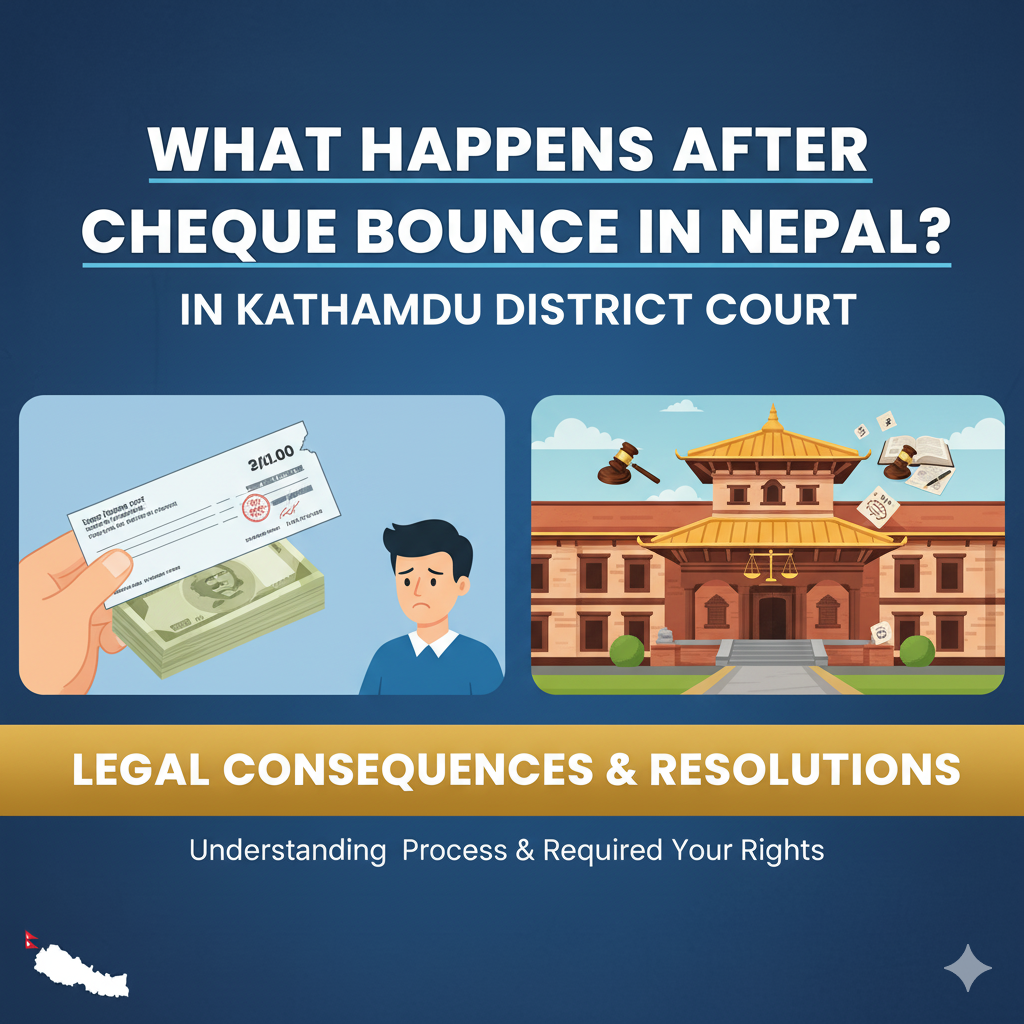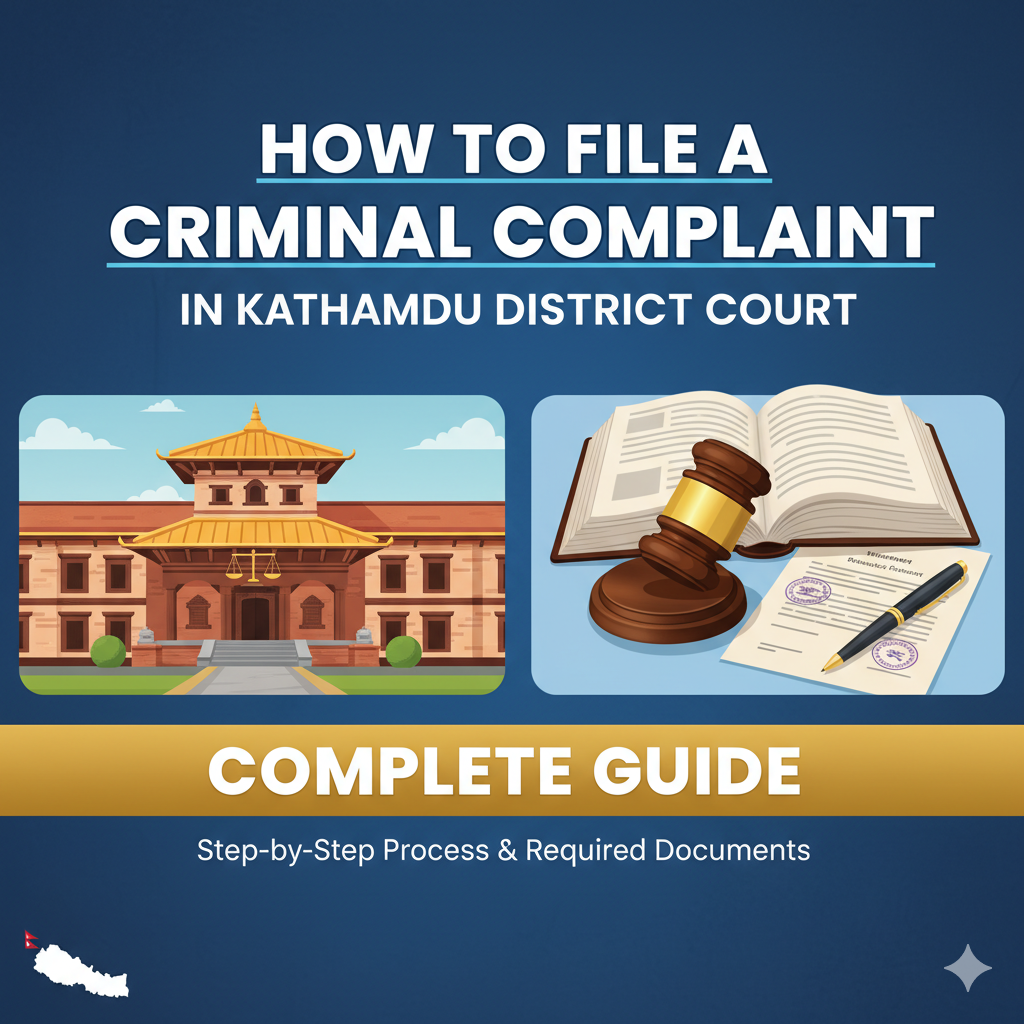
Lawyer in Nepal| Law Firm in Nepal
Lawyer in Nepal helps you when facing legal challenges in Nepal, selecting the right lawyer can determine the outcome of your case. Whether you’re dealing with property disputes, corporate compliance issues, or family law matters, Nepal’s legal landscape offers experienced professionals who understand both traditional practices and modern legal requirements.
The legal profession in Nepal has evolved significantly over the past decades, with lawyers now specializing in various fields to better serve their clients’ diverse needs. This comprehensive guide explores the country’s leading legal professionals and helps you understand what to expect when seeking legal representation.
Understanding Nepal’s Legal System and Professional Standards
Nepal’s legal system operates under a civil law framework, heavily influenced by both traditional practices and modern constitutional principles. The country’s legal professionals are regulated by the Nepal Bar Association, which maintains strict standards for practice and continuing education.
Legal practitioners in Nepal must complete their law degree from recognized institutions, with many pursuing advanced studies to specialize in specific areas. The most respected lawyers often combine academic excellence with practical experience, having worked in various capacities including government positions, private practice, and corporate legal departments.
The legal profession in Nepal encompasses numerous specializations, each requiring specific expertise and understanding of relevant statutes, regulations, and procedural requirements. These specializations include civil law, criminal law, corporate law, constitutional law, property law, family law, cyber law, and immigration law.
Leading lawyer in Nepal

Maheshwor Shrestha: Constitutional and Criminal Law Expert
Maheshwor Shrestha stands as one of Nepal’s most distinguished legal professionals, with extensive expertise spanning multiple areas of law. His specialization in criminal law has made him a sought-after advocate for complex criminal cases, where his deep understanding of procedural law proves invaluable to clients navigating the criminal justice system.
His background as a former government legal advisor provides unique insights into administrative law and regulatory compliance. This experience has been particularly beneficial for clients dealing with government-related legal matters, regulatory disputes, and administrative challenges.
Maheshwor Shrestha’s expertise in constitutional law has positioned him as an authority on matters involving fundamental rights, constitutional interpretation, and public interest litigation. His understanding of Nepal’s constitutional framework makes him particularly effective in cases involving constitutional challenges and rights-based litigation.
His approach to criminal defense combines thorough case preparation with strategic advocacy, ensuring that clients receive comprehensive representation throughout the legal process. His experience with procedural law enables him to navigate complex legal requirements and ensure that all procedural safeguards are properly observed.
Aastha Lohanee: Corporate Law Specialist and best female lawyer in Nepal

Aastha Lohanee brings academic excellence and practical expertise to Nepal’s corporate legal landscape. Her LLM from Tribhuvan University, combined with specialized training in corporate law, has established her as a leading authority in business legal matters.
Her expertise in corporate law encompasses company formation, compliance requirements, contract negotiations, merger and acquisition transactions, and regulatory compliance. She has successfully guided numerous businesses through complex legal challenges, from startup ventures to established corporations.
Aastha Lohanee’s approach to corporate legal services emphasizes preventive legal strategies, helping businesses avoid potential legal issues through proper structuring and compliance programs. Her understanding of Nepal’s business environment enables her to provide practical solutions that align with both legal requirements and business objectives.
Her experience with international business transactions has made her particularly valuable for companies engaged in cross-border activities, foreign investment, and international trade. She understands the complexities of operating in Nepal’s evolving business environment while maintaining compliance with international standards.
Rojen Budha Shrestha: Comprehensive Legal Services

Rojen Budha Shrestha has built a reputation for providing comprehensive legal services across multiple practice areas. His versatile approach to legal practice enables him to handle complex cases that span different areas of law, providing clients with integrated legal solutions.
His expertise in civil law has been particularly beneficial for clients dealing with contract disputes, tort claims, and property-related matters. His understanding of Nepal’s civil law and Criminal law framework enables him to navigate complex civil litigation while protecting his clients’ interests.
Rojen Budha Shrestha’s experience with property law has made him a valuable resource for individuals and businesses dealing with land disputes, property transactions, and real estate development projects. His knowledge of Nepal’s complex property laws and registration procedures has helped numerous clients resolve property-related challenges.
His approach to legal practice emphasizes thorough case analysis and strategic planning, ensuring that clients understand their legal options and the potential outcomes of different approaches. This comprehensive approach has resulted in successful outcomes across various practice areas.
Legal Specializations in Nepal
Property Law Services
Property law in Nepal involves complex regulations governing land ownership, transfer procedures, and dispute resolution. The country’s property laws have evolved to address both traditional land tenure systems and modern real estate transactions.
Property disputes are among the most common legal issues in Nepal, often involving boundary disputes, title conflicts, and inheritance matters. Experienced property lawyers understand the intricate documentation requirements and procedural steps necessary to resolve these disputes effectively.
The registration process for property transactions requires careful attention to legal requirements, proper documentation, and compliance with local regulations. Legal professionals specializing in property law provide essential guidance throughout the transaction process, ensuring that all legal requirements are met and potential issues are identified early.
Property development projects often involve multiple legal considerations including zoning regulations, environmental compliance, and construction permits. Legal experts in this field provide comprehensive guidance throughout the development process, helping clients navigate regulatory requirements while protecting their investments.
Corporate Legal Services
Corporate law in Nepal encompasses a wide range of legal services designed to support business operations and growth. This includes company formation, regulatory compliance, contract management, and dispute resolution.
Company formation requires careful attention to legal requirements including registration procedures, capital requirements, and governance structures. Corporate lawyers provide guidance on selecting appropriate business structures and ensuring compliance with all regulatory requirements.
Contract management is a critical aspect of corporate legal services, involving the drafting, review, and negotiation of various business agreements. This includes employment contracts, vendor agreements, partnership arrangements, and service contracts.
Regulatory compliance is increasingly important for businesses operating in Nepal, with new regulations addressing areas such as data protection, environmental standards, and industry-specific requirements. Corporate lawyers help businesses understand and comply with these evolving regulatory requirements.
Family Law and Domestic Relations
Family law in Nepal addresses a wide range of personal and domestic legal matters, including marriage, divorce, child custody, and inheritance. The legal framework for family matters has evolved to reflect changing social norms while maintaining respect for traditional values.
Divorce proceedings in Nepal require careful attention to legal procedures, property division, and child custody arrangements. Family law attorneys provide guidance throughout the divorce process, helping clients understand their rights and obligations while working toward fair resolutions.
Child custody matters require particular sensitivity and expertise, as courts prioritize the best interests of children while considering parents’ rights and circumstances. Experienced family law attorneys help parents navigate custody disputes while protecting children’s welfare.
Marriage registration and court marriage procedures are important legal processes that require proper documentation and compliance with legal requirements. Family law attorneys provide guidance on these procedures, ensuring that marriages are properly recognized under Nepal’s legal system.
Choosing the Right Legal Representation
Factors to Consider
Selecting appropriate legal representation requires careful consideration of several factors including the lawyer’s experience, specialization, reputation, and approach to client service. Different legal matters require different types of expertise, making it important to match your specific needs with the right professional.
Experience in handling similar cases is crucial when selecting legal representation. Lawyers who have successfully handled cases similar to yours are more likely to understand the challenges involved and develop effective strategies for resolution.
Specialization in relevant areas of law ensures that your lawyer has the specific knowledge and skills necessary to handle your case effectively. While some lawyers practice in multiple areas, others focus on specific specializations that align with particular types of legal matters.
Communication style and approach to client service are important considerations, as legal matters often involve ongoing relationships and regular communication. Lawyers who prioritize clear communication and responsive service are generally more effective in representing their clients’ interests.
Initial Consultation Process
The initial consultation provides an opportunity to assess whether a particular lawyer is the right fit for your needs. This meeting allows you to discuss your legal matter, understand the lawyer’s approach, and evaluate their expertise and communication style.
During the consultation, you should expect to discuss the details of your case, potential legal strategies, estimated timelines, and fee structures. This conversation should provide you with a clear understanding of what to expect from the legal process and the lawyer’s role in representing your interests.
Preparation for the consultation involves gathering relevant documents, preparing a summary of your legal issue, and developing questions about the lawyer’s experience and approach. This preparation helps ensure that you make the most of the consultation time and gather the information needed to make an informed decision.
Legal Service Areas and Expertise
| Practice Area | Key Services | Typical Cases |
|---|---|---|
| Property Law | Dispute resolution, Title verification, Transaction support | Boundary disputes, Inheritance matters, Real estate transactions |
| Corporate Law | Company formation, Compliance, Contract management | Business registration, Regulatory compliance, Commercial disputes |
| Family Law | Divorce proceedings, Custody matters, Marriage registration | Divorce cases, Child custody, Court marriage |
| Criminal Law | Defense representation, Procedural guidance, Appeals | Criminal charges, Procedural violations, Appeals |
| Constitutional Law | Rights protection, Public interest litigation, Constitutional challenges | Fundamental rights cases, Constitutional disputes, Public interest matters |
Understanding Legal Costs and Fee Structures
Legal fees in Nepal vary depending on the complexity of the case, the lawyer’s experience, and the type of legal service required. Understanding fee structures helps clients budget appropriately and avoid unexpected costs during the legal process.
Most lawyers in Nepal use either hourly billing, flat fee arrangements, or contingency fee structures depending on the type of case and client preferences. Hourly billing is common for ongoing legal matters, while flat fees are often used for specific services such as document preparation or simple transactions.
Contingency fee arrangements are sometimes available for certain types of cases, particularly those involving monetary damages. Under these arrangements, the lawyer’s fee is contingent on achieving a successful outcome for the client.
Additional costs may include court fees, document preparation charges, and expenses for expert witnesses or investigations. Clients should discuss all potential costs during the initial consultation to ensure they understand the full financial commitment involved in their legal matter.
Legal Technology and Modern Practice
Nepal’s legal profession has embraced technology to improve service delivery and case management. Modern law firms use technology for document management, client communication, and research, resulting in more efficient and effective legal services.
Digital case management systems enable lawyers to track case progress, manage deadlines, and maintain organized client files. This technology improves accuracy and ensures that important deadlines and requirements are not overlooked.
Online legal research tools provide access to current laws, regulations, and case precedents, enabling lawyers to conduct thorough research and stay current with legal developments. This access to comprehensive legal information improves the quality of legal advice and representation.
Client communication has been enhanced through secure online portals, video conferencing, and digital document sharing. These technologies enable more frequent and convenient communication between lawyers and clients, improving the overall client experience.
Regulatory Environment and Compliance
Nepal’s regulatory environment continues to evolve, with new laws and regulations addressing emerging issues and changing business practices. Legal professionals must stay current with these developments to provide effective advice and representation.
Recent regulatory changes have addressed areas such as data protection, environmental standards, and financial regulations. Lawyers specializing in these areas help clients understand and comply with new requirements while adapting their business practices accordingly.
Compliance programs are increasingly important for businesses operating in Nepal, as regulatory violations can result in significant penalties and legal consequences. Legal professionals help businesses develop and implement compliance programs that address relevant regulatory requirements.
Regular compliance audits and reviews help businesses identify potential issues before they become problems. Legal professionals provide guidance on conducting these reviews and implementing corrective measures when necessary.
Frequently Asked Questions
What constitutes medical negligence in Nepal?
Medical negligence in Nepal occurs when healthcare professionals fail to provide the standard of care expected in their profession, resulting in harm to patients. This includes misdiagnosis, surgical errors, medication mistakes, and failure to obtain informed consent. Establishing medical negligence requires proving that the healthcare provider’s actions fell below accepted professional standards and directly caused patient harm.
How do I file a medical negligence claim in Nepal?
Filing a medical negligence claim in Nepal requires gathering medical records, obtaining expert medical opinions, and demonstrating that the healthcare provider’s negligence caused harm. The process involves filing a complaint with the appropriate court, presenting evidence of negligence, and proving damages. Legal representation is essential due to the complex medical and legal issues involved in these cases.
What compensation is available for medical negligence victims?
Compensation for medical negligence in Nepal may include medical expenses, lost income, pain and suffering, and long-term care costs. The amount depends on the severity of harm, the victim’s age and earning capacity, and the degree of negligence involved. Courts consider both economic and non-economic damages when determining appropriate compensation.
How long do I have to file a medical negligence claim?
The statute of limitations for medical negligence claims in Nepal is generally three years from the date of discovery of the negligence or when the victim reasonably should have discovered it. However, specific circumstances may affect this timeline, making it important to consult with a lawyer promptly after discovering potential negligence.
What evidence is needed for a medical negligence case?
Evidence for medical negligence cases includes medical records, expert medical testimony, witness statements, and documentation of damages. Medical records should be preserved immediately, and expert medical opinions are essential to establish the standard of care and prove negligence. Financial records documenting medical expenses and lost income are also important.
Can family members file medical negligence claims?
Family members may file medical negligence claims in cases involving wrongful death or when the patient is unable to file due to incapacity. Spouses, children, and parents may have standing to file claims depending on the circumstances. The specific relationship and damages suffered determine eligibility to file claims.
How do I choose a lawyer for property disputes in Nepal?
Choosing a lawyer for property disputes requires evaluating their experience with similar cases, knowledge of property law, and track record of successful outcomes. Look for lawyers who specialize in property law and have handled cases involving similar issues. Initial consultations help assess communication style and approach to case management.
What documents are needed for property transactions?
Property transactions in Nepal require various documents including ownership certificates, survey reports, tax clearance certificates, and transfer deeds. The specific documents depend on the type of transaction and property involved. Legal professionals help identify required documents and ensure all paperwork is properly prepared and filed.
How long do property dispute cases typically take?
Property dispute cases in Nepal can take several months to several years depending on complexity, court schedules, and the specific issues involved. Simple disputes may be resolved relatively quickly, while complex cases involving multiple parties or unclear title issues may take longer. Early legal intervention often helps expedite resolution.
What are the costs involved in property litigation?
Property litigation costs include lawyer fees, court fees, document preparation charges, and potential survey or appraisal costs. The total cost depends on case complexity and duration. Clients should discuss fee structures and potential costs during initial consultations to budget appropriately for legal proceedings.
How do I register a company in Nepal?
Company registration in Nepal involves filing necessary documents with the Company Registrar’s Office, obtaining required licenses, and complying with regulatory requirements. The process includes selecting a company name, preparing incorporation documents, and paying registration fees. Legal assistance ensures compliance with all requirements and avoids potential delays.
What are the requirements for foreign investment in Nepal?
Foreign investment in Nepal requires approval from relevant authorities and compliance with foreign investment regulations. Requirements vary depending on the type and size of investment, with some sectors having specific restrictions or requirements. Legal guidance helps navigate the approval process and ensure compliance with all regulatory requirements.
How do I obtain a divorce in Nepal?
Obtaining a divorce in Nepal requires filing a petition with the appropriate court, providing grounds for divorce, and complying with procedural requirements. The process involves serving notice to the other party, presenting evidence, and addressing issues such as property division and child custody. Legal representation helps navigate the complex divorce process and protect your interests.
What rights do children have in custody cases?
Children in custody cases have rights to maintain relationships with both parents when appropriate, receive financial support, and have their best interests considered by the court. Nepal’s family law prioritizes children’s welfare in custody decisions. Courts consider factors such as the child’s age, preferences, and the parents’ ability to provide appropriate care.
How is property divided in divorce cases?
Property division in divorce cases depends on various factors including the length of marriage, each spouse’s contributions, and the property’s nature. Nepal’s family law provides guidelines for property division, but specific circumstances affect how property is allocated. Legal representation helps ensure fair property division and protection of your interests.
Conclusion
Nepal’s legal profession offers experienced professionals capable of handling diverse legal challenges across multiple practice areas. Whether you’re facing property disputes, corporate compliance issues, family law matters, or criminal charges, the country’s leading lawyers provide the expertise and dedication necessary to achieve favorable outcomes.
Maheshwor Shrestha, Aastha Lohanee, Rojen Budha Shrestha, and Shiksha Neupane represent the excellence and specialization available in Nepal’s legal market. Their combined expertise spans the full spectrum of legal services, from constitutional law and criminal defense to corporate law and family matters.
Selecting the right legal representation requires careful consideration of your specific needs, the lawyer’s experience and specialization, and their approach to client service. The initial consultation provides an opportunity to assess compatibility and ensure that you choose a lawyer who can effectively represent your interests.
Nepal’s evolving legal landscape continues to present new challenges and opportunities for both lawyers and clients. The profession’s embrace of technology, commitment to continuing education, and adaptation to changing regulatory requirements ensure that clients receive modern, effective legal services.
When facing legal challenges, prompt action and appropriate legal representation are essential for protecting your rights and achieving successful outcomes. The lawyers highlighted in this guide represent the expertise and dedication available to help you navigate Nepal’s legal system effectively.
Understanding your legal options, preparing thoroughly for legal proceedings, and maintaining open communication with your lawyer are key factors in achieving successful results. With the right legal representation and a clear understanding of the legal process, you can confidently address your legal challenges and protect your interests.
The legal profession in Nepal continues to evolve, with lawyers adapting to new challenges and opportunities while maintaining their commitment to client service and professional excellence. This evolution ensures that clients have access to modern, effective legal services that meet their diverse needs in an increasingly complex legal environment.



